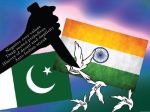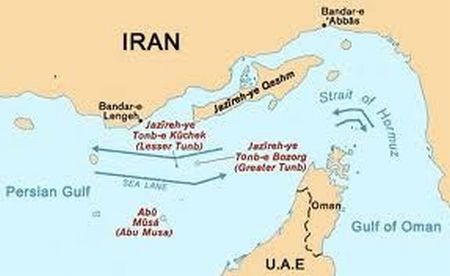India’s policy of extending a hand of friendship and accommodation has been a total failure. On the contrary, it has emboldened Pakistan into considering India to be a soft state and increased its intransigence and hardened its anti-India attitude. How to deal with an unreasonable and hostile neighbour continues to be a convoluted dilemma for India. Every Indian Prime Minister has made liberal conciliatory gestures in the mistaken belief that he could make a place for himself in the history of the sub-continent as the harbinger of peace. One went to the ridiculous extent of banning Indian secret agencies from operating in Pakistan. All were doomed to fail for the simple reason that they were based more on hope than hard ground realities.
This article is published with the kind permission of “Defence and Security Alert (DSA) Magazine” New Delhi-India
 |
Over the last six decades India has tried various policies to make Pakistan see the benefits of a rancour-free relationship. Every Indian Prime Minister has made liberal conciliatory gestures in the mistaken belief that he could make a place for himself in the history of the sub-continent as the harbinger of peace. One went to the ridiculous extent of banning Indian secret agencies from operating in Pakistan. All were doomed to fail for the simple reason that they were based more on hope than hard ground realities. In the end, the Indian leadership had to throw its hands up in sheer frustration due to Pakistan’s anti-India intransigence.
A few years ago a group of Indian ladies visited Pakistan under a social exchange programme. One of the ladies sustained a wrist fracture in an accidental fall and was taken to the nearest medical facility. The orthopaedician on duty treated the lady diligently and to the best of his ability. While bandaging the wrist, he engaged the lady in small talk. When the lady referred to commonality of Indian and Pakistani cultures, the doctor flared up and blasted the lady for her ‘flawed views’. “What is common between us? We eat cows and you worship them. We asked for a separate nation only because we are totally different in all respects. I suggest you Indians should stop fooling yourselves”, he thundered.
The above incident has been recalled here to show the extent to which Pakistani citizens have been brainwashed. Their deep-rooted hatred and venomous mindset defies logic. When some well-meaning enthusiasts talk about Track-II diplomacy and initiatives like ‘Aman Ki Asha’, they forget the fact that Pakistan lives and thrives on anti-Indian policy. The day Pakistan sheds hostility towards India and adopts a conciliatory stance, it would amount to negating two-nation theory, the raison d’être for its very existence. Therefore, it will be naïve to expect Pakistan to have a change of heart.
‘Be patient with a bad neighbour: he may move’ is a famous Egyptian proverb. Unfortunately, such hopes cannot be entertained with respect to a bad neighbouring country. It is a great misfortune that India has been cursed with a neighbour like Pakistan which does not mind harming itself only to harm India. Kashmir is merely a manifestation of Pakistan’s infinite hostility towards India. Were India to handover Kashmir to it on a platter, Pakistan will invent newer issues to keep the pot boiling. Discord and acrimony would continue as always.
India’s policy of extending a hand of friendship and accommodation has been a total failure. On the contrary, it has emboldened Pakistan into considering India to be a soft state and increased its intransigence and hardened its anti-India attitude. How to deal with an unreasonable and hostile neighbour continues to be a convoluted dilemma for India.
Ground realities
Before embarking on a fresh initiative, Indian policy makers will do well to analyse underlying reasons for Pakistan’s anti-India stance and antagonistic attitude while keeping the following ground realities in mind:
Negative core values: Every nation has certain core values. These are fundamental traits that provide sustenance to it for its existence. Normally, these are positive attributes which are considered non-negotiable and unalterable. In many countries, the core values are enshrined in the opening chapter of their written constitution. In India’s case, it is to secure for all its citizens justice (social, economic and political); liberty (of thought, expression, belief, faith and worship); equality (of status and opportunity); and fraternity while assuring the dignity of the individual and the unity and integrity of the nation.
Rogue countries like Pakistan do not believe in international conventions and shamelessly flout them. The only language they understand is of strength and retribution. India must make it amply clear to Pak government that every anti-India mischief would invite immediate reprisal and that no transgression will go unpunished
On the other hand, despite high sounding assertions in its frequently rewritten constitution, Pakistan’s core values are based on the warped political principles of ‘hate and hurt India’ at all costs, even if its own existence gets jeopardised in the process. Pakistan was created on the ideology that the ‘pure’ cannot coexist with the infidel. A nation born out of hatred needs hatred to feed itself on for continued sustenance and to justify its existence. Anti-India stance fulfills this need and cannot be shed.
Deep rooted prejudices: Bhutto’s ‘1,000 year war’ and Zia’s ‘bleeding India by 1,000 cuts’ are indicative of innate prejudices. In its school text books, Pakistan’s existence is claimed since the time Qasim captured Sindh province in the 8th century. Muhammad-bin-Qasim and Mahmud Ghori are portrayed as great heroes who were instrumental in the establishment of Muslim rule in India. When a leading Pakistani paper claims that Pakistan is destined to defeat India because Pakistan’s ‘horses in the form of atomic bombs and missiles’ are far better than Indian ‘donkeys’ and boasts of re-conquering India, the level of percolation of anti-India venom can well be gauged.
In the wake of 1962 Indo-China conflict, Pakistan tried to fish in troubled waters to extract concessions from India. Subsequently, it decided to befriend China to spite India. Today, it swears by its camaraderie with China. It is an unprincipled marriage of expediency against a common adversary. Anti-India attitude has compelled Pakistan, a nation owing its existence to religious fundamentalism, into embracing communist China.

 von
von 

